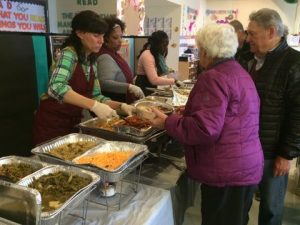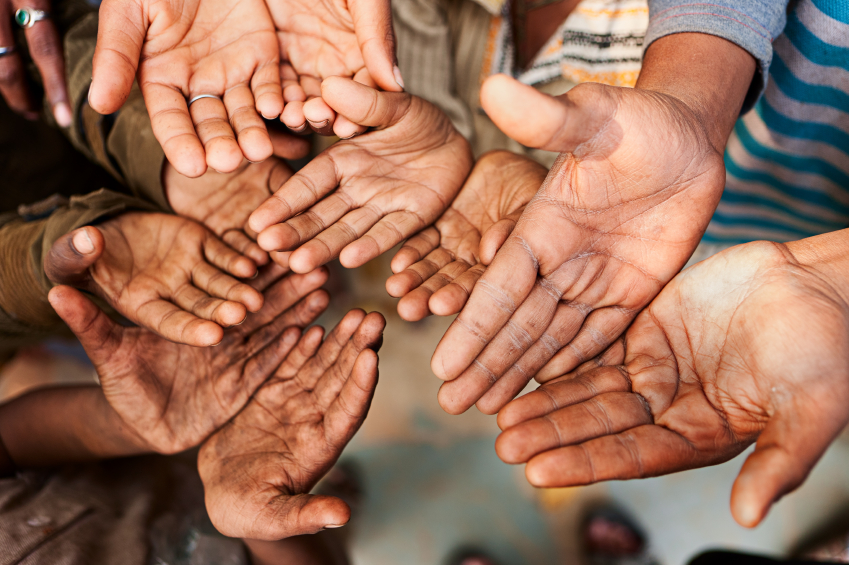When three-year-old Alan Kurdi’s lifeless body washed up on a Turkish beach not far from holidaymakers, Europe’s refugee crisis took on a new urgency. For those not already close to the growing disaster, this tragic image propelled people into action. Frustrated by a lack of effective government response, ordinary people filled cars and transit vans with supplies, tents and secondhand clothes and set out to Europe’s borders, determined to help.

Last October, Tina Brocklebank, a 46-year-old student from Yorkshire, spent a week constructing tents in the Calais refugee camp with the charity L’Auberge des Migrants, now part of the umbrella organisation Help Refugees. Almost a year later she is still there.
“I remember returning from Calais after that first week feeling utterly scrambled. I stood on the ferry and cried at the ease of crossing that magical 20 miles. My new friends in camp wanted more than anything to cross that stretch of water to begin a safe life and yet it is only accessible to them by risking their lives jumping on to moving trains or sneaking into lorries. I sat in a pub garden that night completely disengaged, feeling like a rabbit caught in headlights,” she says.
Despite being in a relationship and in the middle of studying for a degree, Brocklebank moved out of her rented accommodation, put her belongings in storage and returned to Calais a little over a month later. She now spends her days working with the charity Calais Kitchen distributing oil, tomatoes, onions, lentils, flour, milk, tea, sugar, and firewood to every tent in the camp.
“Everything that people need in the camp involves queueing in the rain, wind or scorching sun as there are no trees for shade in the camp. People queue for hours for a six-minute shower. It is so disrespectful, undignified and humiliating. This is why we distribute packages, to alleviate the queuing,” she says.
The crisis in and around the refugee camp near Calais in France is worse than ever. The number of people is at an all-time high of almost 10,000, months after French authorities dismantled a significant part of the camp. Calais Kitchen spends £20,000 a month on food, all raised from public donations. Charities say they are running out of supplies on a daily basis, with refugees reporting they are going hungry.
“There is an awful, desperately uncomfortable position of having to make a judgment on how much food to give people because we simply don’t have enough. I have to challenge people who say that there are eight people sleeping in a tent when we can clearly see there are only five. But we know it’s because our weekly food package only lasts a few days,” she says.

“I went to Calais to make a small difference, but in reality it was my world that will be forever different because of what I’ve seen and heard.”
In the year since Alan’s death, the number of public-founded aid charities has soared. Paul Hutchings, 48, from Brighton, volunteered in Calais last September. Devastated by what he saw, he quit his job as a market researcher this year to set up Refugee Support Europe, a charity based in Greece.
“I watched a premature baby slowly die in the camp over the course of 10 days, because the hospitals couldn’t provide care and the large agencies weren’t able to commit. I was sick of seeing people like you and me who have had to suffer such trauma being treated so badly by Europe. I could just not sit by,” he says.
Asked if there is a need for smaller grassroots charities, Hutchings is certain there is.
“We were asked by the Greek army to provide a step for the wash basins for the children to wash their hands, because no one else could pay for it. We just paid for it straight away. It cost €200. Our organisation makes sure to buy locally so we support the Greek economy at the same time,” he says.
Like many other newly launched aid organisations, Hutchings’ charity operates in a gap the more established organisations cannot fill. Their flexibility means the changing needs of the camp can be responded to as and when they arise.
“We built benches and tables and a large space where people can gather, discuss, play games, sew, and watch films. For the kids we have pool parties on Sundays and we put in two swings as part of a larger playground. Large organisations or governments aren’t able to move as quickly as us. I can see the difference we’re making,” he says.
“Working on a camp can be exhausting and upsetting but to see the human spirit continue to shine through adversity puts many of my trivial concerns into perspective. I feel so privileged to be doing this with awe-inspiring volunteers too; they are the best of humanity.”
But not everyone is in a position to quit their jobs to take on physically and mentally exhausting unpaid work. Instead, thousands of ordinary people are doing what they can to help from where they live. Julia, 42, from Milton Keynes, helps refugees relocating to her area through the charities Citizens: MK and the British Red Cross. She helps furnish houses for refugee families, and offers help, support and friendship when they arrive.
“We have had problems with neighbours vandalising refugee properties. We had to reject a council house lined up for a family with four children the day before the move as there were live wires hanging out of the walls, and boiler leaks on to electrics. The next three families are coming on 7 September and to date we have only one house,” she says.
“But if I am able to help, I must. I can’t change the world but if I can make a difference to one person, one family, I am changing their world.”
Rachel, a 60-year-old teaching assistant, has been hosting refugees in Oxford since last year. Her grandmother was a refugee from Lithuania, and her mother was six years old when she was forced to flee Germany. These family histories, in part, encourage her to continue volunteering.
“These people have been through so much; they deserve much, much better. Many come as unaccompanied children and once they reach 18 years old they have all support cut off. They are not entitled to housing or education or benefits. Most have no families and they have already spent years here and put down roots. What are they supposed to do? They are just kids who have been terribly traumatised,” she says.
As charities warn of donor fatigue, there is a greater than ever need for volunteers and donations. This week 6,500 refugees, many from Eritrea and Somalia, were rescued off the coast of Libya. The latest census figures show a 30% increase in refugees in the Calais camp’s population in a month. And at least 24,000 people are believed to have made the journey along the Balkans migration trail since the route shut in early March.
Like many others unable to travel to the camps, 74-year-old Valerie Johnstone knew she had to do something to help. She dedicates her time to volunteering with asylum seekers in her small village in south-west France. Nine months ago, 17 men from Calais were temporarily settled in her village while they waited for their asylum applications to be reviewed.
“We hosted cinema evenings at our house, had meals, raised money so they could all have shoes. Now they are scattered throughout France, with only five so far having gained asylum. They have all been here with us for summer holidays. We call them family now,” says Johnstone.
“We have gained as much as we have given from these young men and now we just want to see them settled with safe lives and then jobs. If everyone would just care for someone the world would be a better place.”

